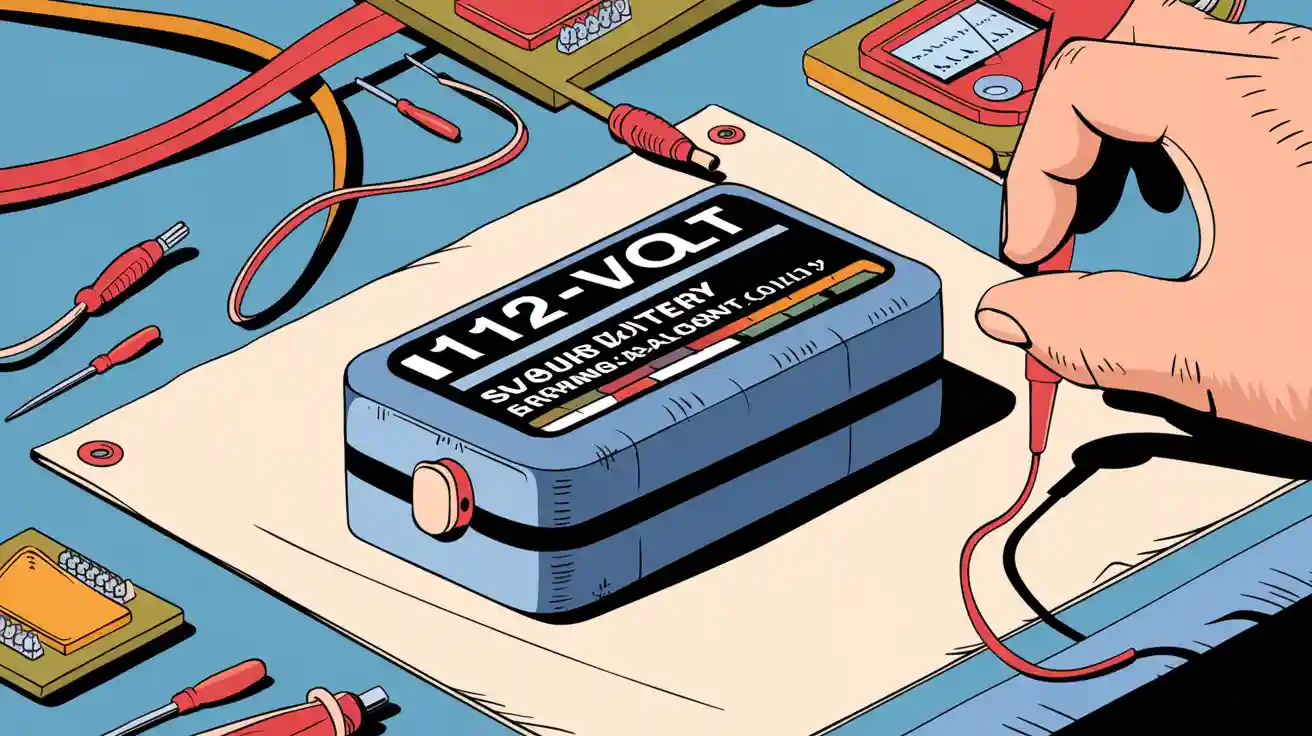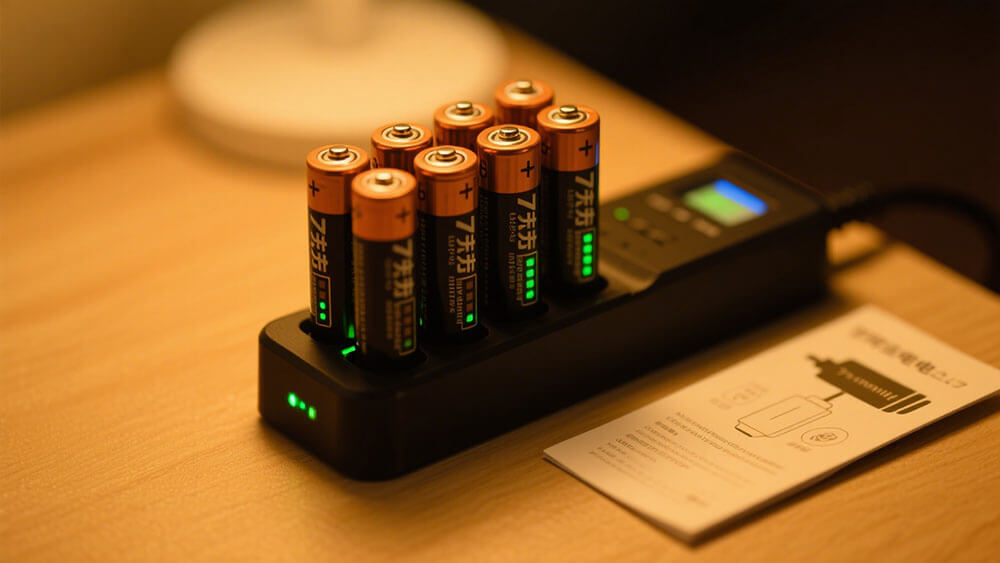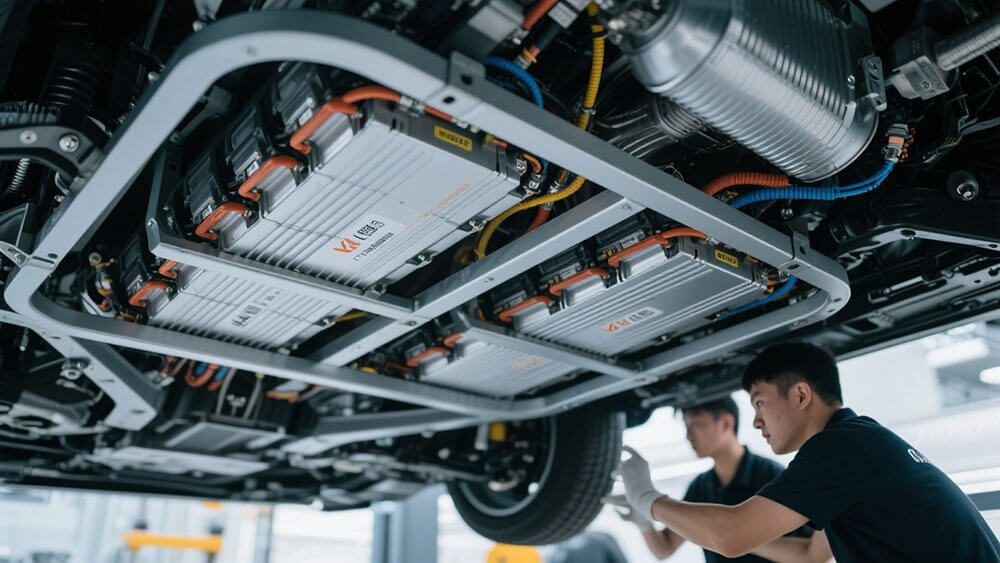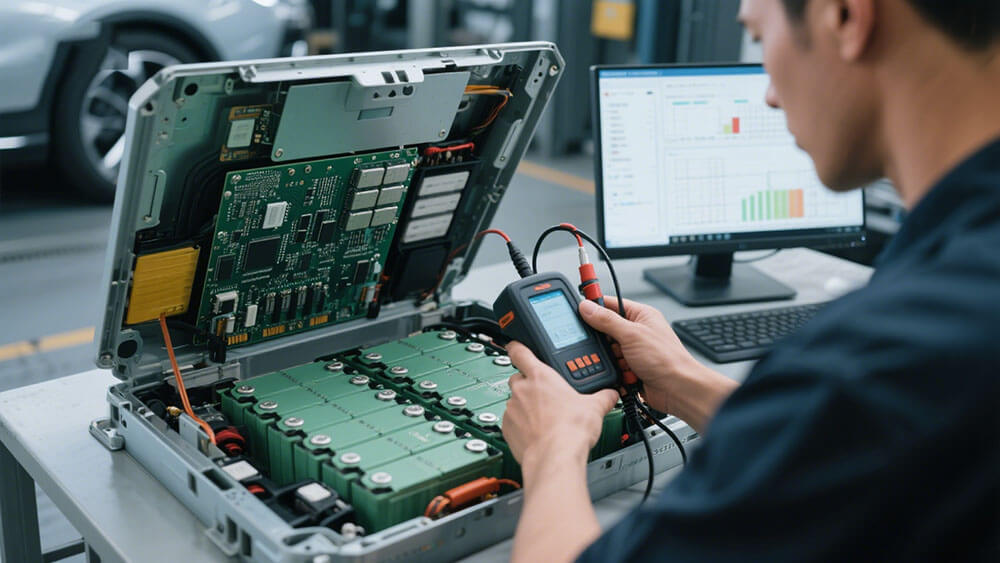
Small 12-volt batteries are essential for powering equipment across various industries. These small 12 volt batteries are valued for their compact size and dependable performance, making them crucial for a wide range of applications.
Backup power supplies rely on small 12 volt batteries to keep critical systems like security alarms and medical devices operational during outages.
Portable electronics, including handheld radios and camping lanterns, depend on small 12 volt batteries for energy.
Golf carts and electric vehicles utilize small 12 volt batteries for propulsion and auxiliary functions.
Emergency lighting systems count on the consistent performance of small 12 volt batteries in urgent situations.
Remote monitoring stations, such as weather trackers, benefit from the off-grid capabilities of small 12 volt batteries.
DIY projects and hobbyist electronics frequently incorporate small 12 volt batteries for robotics and automation tasks.
The versatility of small 12 volt batteries ensures they meet the demands of industrial equipment, backup systems, and beyond.
Key Takeaways
Small 12-volt batteries are important for running many devices. These include backup systems, portable gadgets, and electric cars.
Picking the right battery depends on what you need. Think about power, weight, and how much care it needs.
Lithium-ion batteries are light, last long, and charge quickly. This makes them great for today’s technology.
Part 1: Types of Small 12-Volt Batteries

Understanding the types of 12v batteries is essential for selecting the right one for your application. Each type offers unique characteristics, advantages, and limitations, making them suitable for different use cases. Below, we explore the most common types of 12v batteries and their features.
1.1 Lead-Acid Batteries
Lead-acid batteries are among the most widely used 12v battery types due to their reliability and cost-effectiveness. These batteries are commonly found in automotive, industrial, and backup power applications.
Characteristics and Advantages:
Durability: Lead-acid batteries are known for their robust design, making them ideal for high-power applications.
Cost-Effectiveness: They are significantly cheaper than lithium-ion batteries, making them a popular choice for budget-conscious users.
Cold Weather Performance: Unlike lithium-ion batteries, lead-acid batteries maintain their performance in sub-zero temperatures.
Feature | 12V Lead-Acid Battery | 12V Lithium Battery |
|---|---|---|
Weight | 10-30kg | 3-6kg |
Energy Density | 30-50 Wh/kg | 150-200 Wh/kg |
Cycle Life | 300-500 cycles | 2000-5000 cycles |
Charging Time | 6-12 hours | 1-4 hours |
Self-Discharge Rate | ~5% per month | ~2% per month |
Applications:
Lead-acid batteries are commonly used in:
Starter, light, and ignition (SLI) systems for vehicles.
Uninterruptible power supplies (UPS) for critical systems.
Military-grade equipment requiring high ambient ratings.
Tip: While lead-acid batteries are cost-effective, their shorter lifespan and heavier weight may not suit all applications.
1.2 Nickel-Cadmium and Nickel-Metal Hydride Batteries
Nickel-based batteries, including Nickel-Cadmium (NiCd) and Nickel-Metal Hydride (NiMH), are less common but still relevant in specific scenarios.
Characteristics and Advantages:
NiCd Batteries: Known for their durability and ability to deliver consistent power, even under extreme conditions. However, they suffer from a “memory effect,” which can reduce their capacity over time.
NiMH Batteries: Offer higher energy density than NiCd batteries and are more environmentally friendly.
Battery Type | Characteristics |
|---|---|
Nickel-Cadmium | Durable, consistent power, memory effect |
Nickel-Metal Hydride | Higher energy density, eco-friendly |
Applications:
Nickel-based batteries are often used in:
Emergency lighting systems.
Portable medical devices.
Consumer electronics requiring moderate energy storage.
Note: NiMH batteries are gradually replacing NiCd batteries due to their lower environmental impact.
1.3 Lithium Batteries
Lithium batteries represent the cutting edge of 12v battery technology. They are lightweight, efficient, and offer a longer lifespan compared to other types of 12v batteries.
Characteristics and Advantages:
High Energy Density: Lithium batteries provide 3-5 times the energy density of lead-acid batteries.
Longer Lifespan: With a cycle life of 2000-5000 cycles, lithium batteries significantly outlast lead-acid alternatives.
Fast Charging: These batteries can charge in as little as 1-4 hours, making them ideal for time-sensitive applications.
Feature | 12V Lead-Acid Battery | 12V Lithium Battery |
|---|---|---|
Energy Density | 30-50 Wh/kg | 150-200 Wh/kg |
Cycle Life | 300-500 cycles | 2000-5000 cycles |
Charging Time | 6-12 hours | 1-4 hours |
Applications:
Lithium batteries are widely used in:
Solar energy storage systems.
Robotics and automation projects.
Electric vehicles and marine systems.
Tip: Lithium-ion batteries are ideal for applications requiring lightweight and high-performance energy storage.
Part 2: Applications of Small 12-Volt Batteries

Small 12-volt batteries play a critical role in various industries, offering reliable power solutions for diverse applications. Their compact size, efficiency, and adaptability make them indispensable in automotive systems, marine environments, renewable energy setups, and portable electronics.
2.1 Automotive and Industrial Equipment
In automotive and industrial settings, 12v batteries are essential for powering critical systems. Vehicles rely on them for starter, lighting, and ignition (SLI) functions, while industrial equipment depends on their robust performance for uninterrupted operation. Lead-acid batteries dominate this sector due to their durability and cost-effectiveness.
Key Features for Automotive and Industrial Use:
High Power Output: Lead-acid batteries deliver the necessary energy for heavy-duty applications.
Temperature Resilience: These batteries perform reliably in extreme conditions, ensuring consistent operation.
Cost Efficiency: Their affordability makes them a preferred choice for large-scale industrial applications.
Note: For industrial applications, consider the environmental conditions and maintenance requirements when selecting a 12v battery. Learn more about industrial battery solutions here.
2.2 Marine and RV Systems
Marine vessels and recreational vehicles (RVs) demand reliable power sources for navigation, lighting, and auxiliary systems. Lithium-ion 12v batteries have become the go-to choice in this sector due to their lightweight design and superior energy density.
Why Lithium-Ion Batteries Excel in Marine and RV Applications:
Lightweight Design: Lithium-ion batteries reduce the overall weight of marine vessels and RVs, improving fuel efficiency.
Longer Lifespan: With a cycle life of 2000-5000 cycles, lithium-ion batteries outlast traditional lead-acid options.
Fast Charging: These batteries recharge quickly, minimizing downtime during trips.
Feature | Lead-Acid Battery | Lithium-Ion Battery |
|---|---|---|
Weight | Heavy | Lightweight |
Cycle Life | 300-500 cycles | 2000-5000 cycles |
Maintenance | Regular | Minimal |
Tip: Lithium-ion 12v batteries are ideal for marine and RV systems requiring high performance and minimal maintenance.
2.3 Solar Energy Storage Solutions
The integration of small 12-volt batteries into solar energy systems has revolutionized renewable energy storage. These batteries store excess solar energy, ensuring a consistent power supply even during cloudy days or at night. Lithium-ion batteries, particularly LiFePO4 lithium batteries, are the preferred choice for solar applications due to their efficiency and longevity.
Performance Metrics of Lithium-Ion Batteries in Solar Systems:
Metric | Description |
|---|---|
Energy Density | Gravimetric energy density reaches 140 – 180 Wh/kg; volumetric energy density is 400 – 500 Wh/L. |
Cycle Life | Withstands 2,000 – 3,000 charge-discharge cycles, maintaining 80% capacity. |
Charge/Discharge Rate | Capable of high charge and discharge rates, expressed in C-rate. |
Temperature Performance | Retains 70 – 80% capacity at -20°C, outperforming some other lithium-ion chemistries. |
Sustainability Note: Solar energy storage solutions using lithium-ion batteries contribute to a greener future. Learn more about sustainability efforts here.
2.4 Portable Electronics and Backup Power
Portable electronics and backup power supplies rely heavily on small 12-volt batteries for their energy needs. Lithium-ion 12v batteries stand out in this domain due to their high efficiency, long lifespan, and minimal maintenance requirements.
Advantages of Lithium-Ion Batteries in Portable Applications:
Higher cycle life ensures more charge and discharge cycles without significant degradation.
Minimal self-discharge allows these batteries to hold a charge longer than AGM or lead-acid batteries.
Commonly used in portable electronics, electric vehicles, and renewable energy systems.
Callout: Lithium-ion batteries are the backbone of modern portable electronics and backup power supplies. Their efficiency and reliability make them indispensable in this sector.
For custom battery solutions tailored to your specific needs, explore Large Power’s offerings.
Part 3: Choosing the Right Battery for Your Business

3.1 Assessing Application Requirements
Selecting the right 12v battery begins with understanding your application’s specific needs. Each device or system has unique power demands, and matching these requirements ensures optimal performance.
Power Needs: Determine the energy consumption of your devices. For instance, high-demand equipment like medical devices or industrial machinery may require batteries with higher capacities, measured in ampere-hours (Ah).
Device Quantity: Chart out how many devices will rely on the battery. This helps calculate the total energy demand and ensures the battery can handle the load.
Mobility Considerations: For portable applications, lightweight options like LiFePO4 batteries are ideal due to their compact size and reduced weight.
Maintenance Expectations: Some batteries, such as lithium-ion batteries, offer a maintenance-free experience, making them suitable for businesses seeking long-term reliability.
Tip: Always consider the battery’s cycle life and depth of discharge (DOD) to ensure it aligns with your operational needs.
3.2 Budget Considerations
Balancing performance and cost is critical when choosing a 12v battery. While upfront costs matter, long-term expenses like maintenance and replacement should also factor into your decision.
Initial Investment: Lead-acid batteries are cost-effective initially but may require frequent replacements. Lithium-ion batteries, though pricier upfront, offer a longer lifespan and reduced maintenance costs.
Operational Efficiency: Batteries with higher energy density, like lithium-ion, provide more power in a smaller size, reducing operational inefficiencies.
Lifecycle Costs: Consider the total cost of ownership. For example, LiFePO4 batteries, with their extended cycle life of 2000-5000 cycles, often prove more economical over time.
Note: Investing in a high-quality battery management system (BMS) can protect your battery from overcharging and overheating, extending its lifespan.
3.3 Environmental and Operating Conditions
The environment in which your battery operates significantly impacts its performance and longevity.
Temperature Range: Extreme temperatures can affect battery efficiency. Lithium-ion batteries perform well across a wide range, making them suitable for diverse climates.
Durability: Applications in harsh environments, such as industrial or marine settings, require robust batteries like LiFePO4, which resist vibrations and shocks.
Sustainability Goals: Businesses prioritizing eco-friendly solutions should consider lithium-ion batteries for their higher efficiency and longer lifespan.
Factor | Lead-Acid Battery | Lithium-Ion Battery |
|---|---|---|
Temperature Tolerance | Moderate | High |
Durability | Moderate | High |
Eco-Friendliness | Low | High |
Sustainability Note: Choosing lithium-ion batteries supports greener operations. Learn more about sustainability efforts here.
For tailored battery solutions that meet your business needs, explore Large Power’s custom offerings.
Understanding the types and features of small 12 volt batteries is crucial for optimizing their use in diverse applications. From automotive systems to renewable energy storage, these batteries power essential technologies. Recent market data highlights their growing demand, driven by electric vehicles and renewable energy solutions:
Evidence Type | Description |
|---|---|
Demand for EVs | The increasing demand for electric vehicles is a primary growth factor for the 12V batteries market. |
Renewable Energy | The rise of renewable energy sources necessitates efficient energy storage solutions. |
Diverse Applications | 12V batteries are essential across various sectors, including automotive and renewable energy. |
Lithium-ion batteries, in particular, have revolutionized modern applications. Industry experts recognize them as a “technological wonder,” with advancements in energy density and affordability making them indispensable in consumer electronics and electric vehicles. Their lightweight design, long lifespan, and efficiency make them the preferred choice for businesses seeking reliable energy solutions.
Tip: Evaluate your specific needs and operating conditions to select the right 12v battery for your business. This ensures optimal performance and long-term cost savings.
FAQ
1. What factors should you consider when storing small 12-volt batteries?
Store batteries in a cool, dry place.
Avoid exposure to extreme temperatures or direct sunlight.
Ensure proper ventilation to prevent overheating.
Tip: Regularly check for corrosion or leaks to maintain battery health.
2. How can you extend the lifespan of a 12-volt battery?
Avoid overcharging or deep discharging.
Use a compatible charger.
Perform routine maintenance, such as cleaning terminals and checking voltage levels.
Note: A battery management system (BMS) can help prevent overcharging and overheating.
3. Are lithium-ion batteries safe for all applications?
Lithium-ion batteries are safe when used correctly. However, they require proper handling and storage. Avoid puncturing or exposing them to high heat to prevent safety risks.
Callout: Always follow the manufacturer’s guidelines for safe usage.




